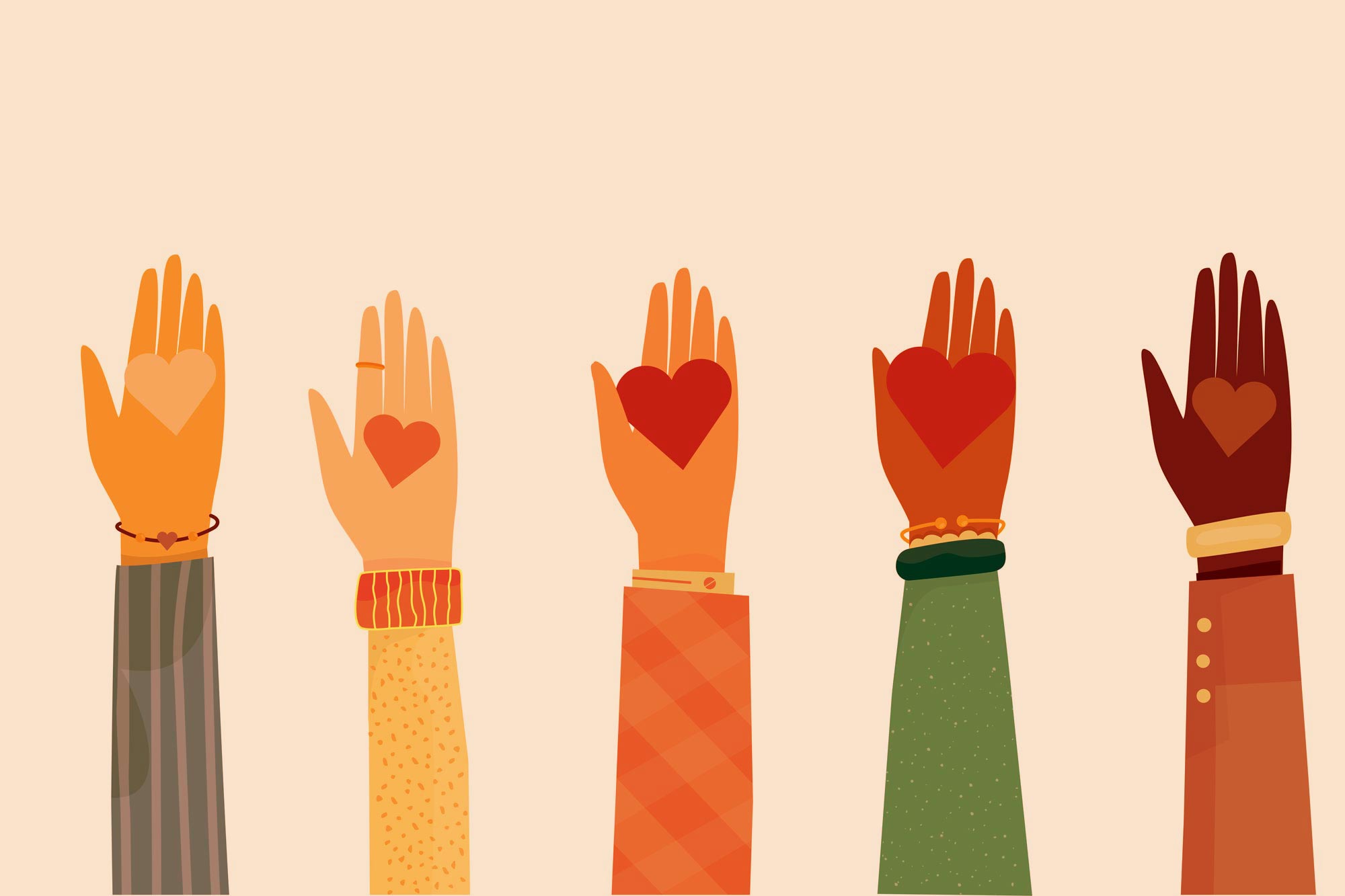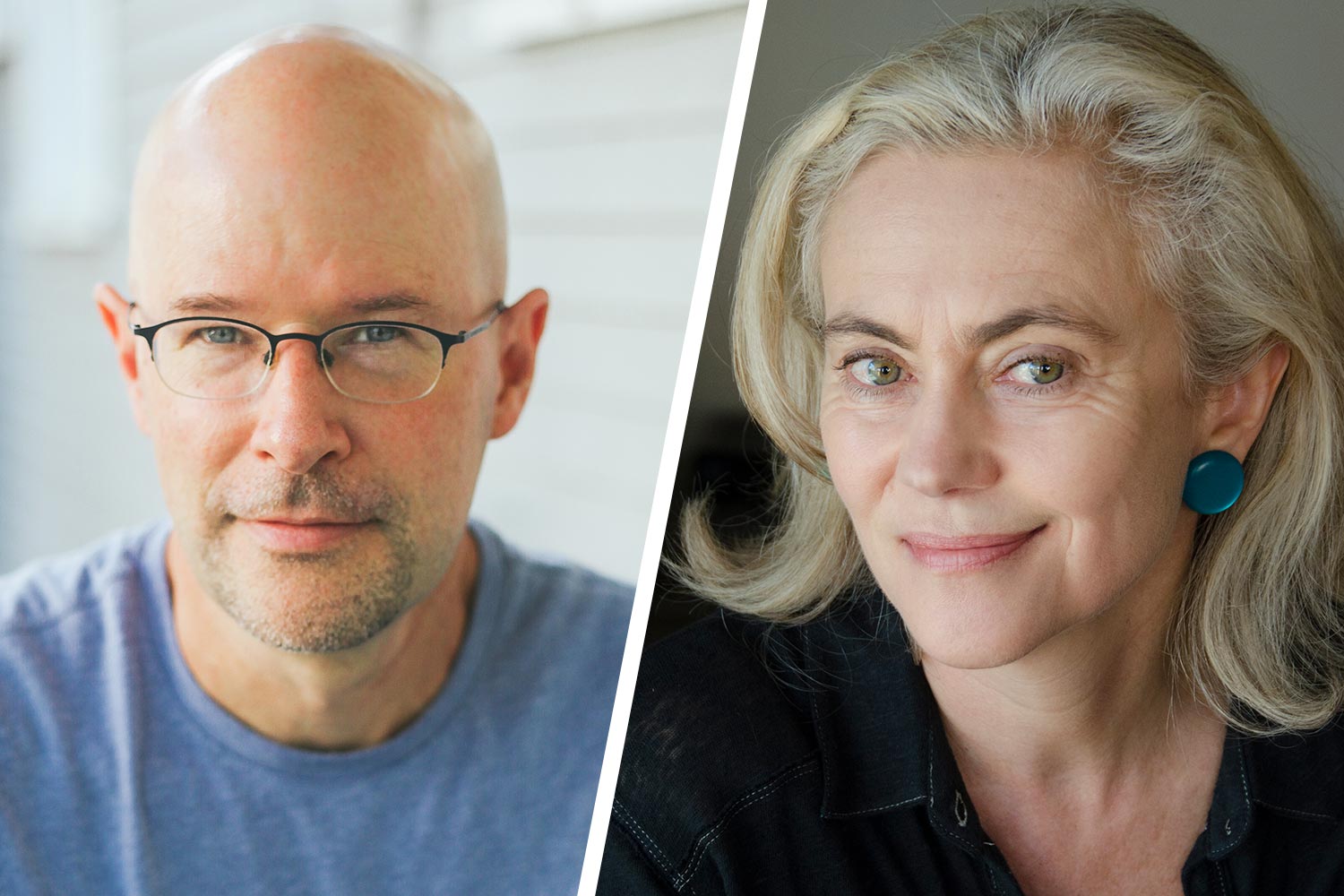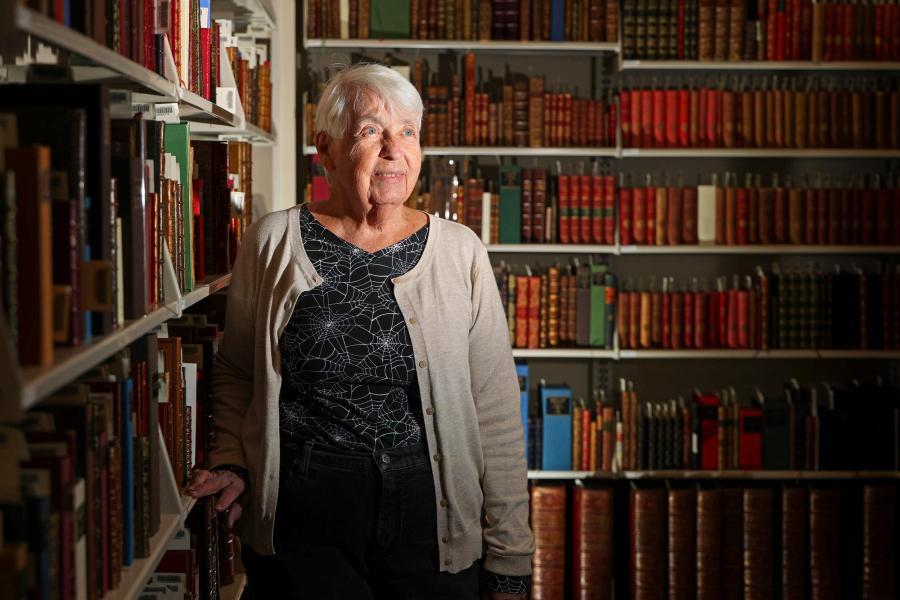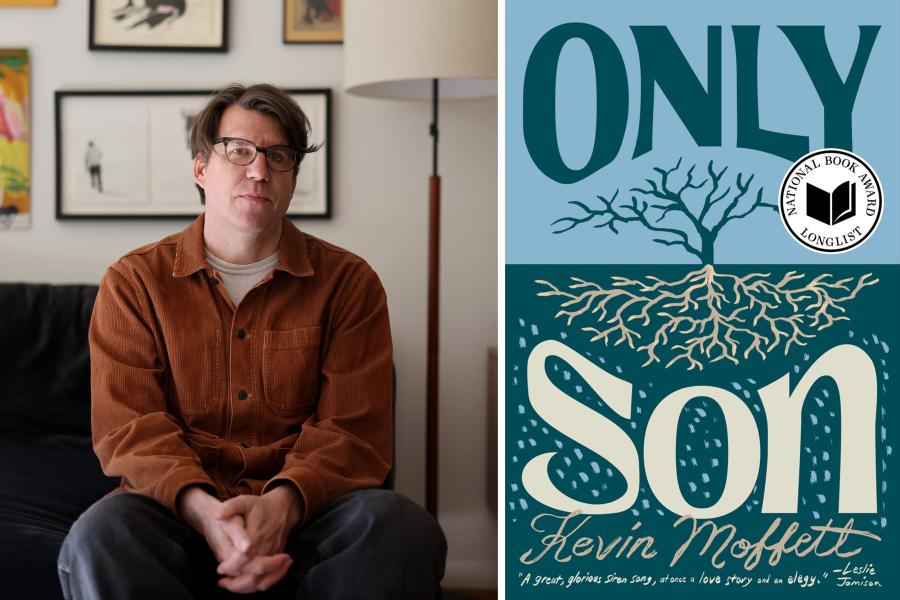“Modern Love” consists of essays that have been submitted by readers and are then edited by Jones. They are “about relationships, feelings, betrayals and revelations,” according to the Times’ webpage.
Jones has edited the column since it began in 2004 and now manages the franchise it has become: two weekly columns, three books, a weekly podcast with more than 100 million downloads, “Modern Love Live” events (currently offered virtually) and an Amazon Prime TV series in its second season.
“It’s sort of become my life. It constantly surprises me,” said Jones, an English major who graduated in 1985. “But honestly, it’s been a great ride. I really enjoy it.”
Jones, the son of former UVA political science professor Charles Jones – who has two children with his wife, writer Cathi Hanauer – will take part in a [virtual] fireside chat with UVA English professor and author Jane Alison that is being put on by the Virginia Club of New York on Thursday night.
Prior to the event, UVA Today caught up with Jones.
Q. Over the years, how have the submissions you’ve received changed? Have the parameters for what makes a “Modern Love” story changed over that time?
A. I think that the stories change as the world changes, in a way. I mean, the column started before gay marriage was legal anywhere in the United States. It started before online dating was something people did regularly and before there were social media [options]. So the whole way that we meet people and stay in touch, the way we form families … all of that has changed so dramatically in the past decade and a half.
And really my aim is to have the column reflect that, for the column to be the news about how we live our relationship lives today, and it has sort of charted that along the way.
Q. In that vein, what have column submissions been like during the pandemic?
A. The pandemic has been fascinating, honestly. It’s weird to be living it while covering it. To me, it has sort of gone in phases. … When it started, we actually talked about it and thought that [the column’s] importance would be in talking about relationships that don’t have to be necessarily affected by the pandemic. But that was in the early days when the Times told us to leave the building and not come back for two weeks; we very quickly realized that this was a long-term event.
The submissions to the column went from being everything that had been submitted before the pandemic to the point where probably 90% of what we’re receiving now involves the pandemic in one way or another. So there was no escaping it, and it became figuring out what are the interesting stories?
What was most fascinating to me were those early months when people all across the country just retreated to their houses and apartments. For a lot of people, the decision was like, “Where am I in this relationship, and is this a relationship where we’re going to throw in together and be isolated together for some undetermined amount of time? Or is this relationship not that important, and is this going to be our excuse to break it off?”
So it became this tipping point for so many couples, and I think a lot of relationships that maybe would have carried on in sort of the casual way, in the commitment-less way, it turned those, in a lot of cases, into serious, committed relationships. This external force sort of turned a lot of relationships into things where they’re still going today and they’re strengthened by it. People sort of saw a deeper meaning all of a sudden.
Q. For a place like New York, which has been hit so hard by COVID, does it feel good that the column can be lifeline of sorts for so many people?
A. You know, I’d like to think so.
For a lot of people, just reading about things that matter on a personal level has become more important. The world has become overwhelming in a lot of ways, between the political upheaval and the climate upheaval and the pandemic overlaid on top of all that. I think there’s been a real hunger for not only relationship stories, but relationship stories that are upbeat in terms of people being there for each other and having a sense of commitment and care and kindness. There’s been a real embrace in that, and I can sense that in the submissions that come into the column.
Relationships are messy and people are mean and all of that – and what we have received has reflected a lot of that ugly behavior, too – but I think there’s been a trend in kindness during the past year in what we’re seeing people want to write about and explore.
Q. I’m guessing when you started out, you never expected to be like a “love doctor,” so to speak. I imagine people who read the column are always seeking you out for answers about their love lives and other stuff. What’s that like?
A. I think the word “love” sort of gets a bad rap sometimes [laughing]. People sort of silo love as being about romance and that kind of thing. To me, love is like the rich stuff of life. It’s like the most important stuff of life – and I don’t think of it as masculine or feminine or anything else. It’s how parents are with children – and it’s just things that matter.
So for me as an editor, I just feel like I’m working with people’s most important stories. And I’m honestly least comfortable with the idea that I’m a relationship guru who gives advice – like I don’t want to give anyone advice about their life [laughing]. I can give them advice on their writing, but their love life … that’s for other people. That’s for therapists.
Q. How many submissions do you get every week, and as an editor, what’s your process like? How do you wade through everything?
A. You know, it used to be a fairly orderly and organized process for, I don’t know, the first 12 years or so. I just managed it and we would get a hundred a week or so, and I would wade through and find what seemed to work best at the time. That model for dealing with submissions was sort of blown apart – first by the podcast, which exposed the column to a whole new audience that went beyond Times readership, and actually went beyond the United States. About 35% of the podcast listeners are from abroad.
And then when the TV show came out a year and a half ago, it just obliterated our process completely. So I don’t know how many we get anymore, honestly. I think we get we get too many to respond to – I don’t know, 10- or 11,000 a year or so.
I used to be the only reader, and now I have a colleague, Miya Lee. We read [submissions] when we have time. Sometimes it’s in an orderly way, looking at what came in first. Sometimes we skim around looking at subject lines. We’re just looking for something that’s smart and emotional and heartfelt, and it tells a story where you want to find out what happened.
Q. What are a few of your favorite columns from over the years? Any personal favorites?
A. The ones that come to mind, even if they weren’t necessarily my personal favorites, are the ones that got the most attention because they had such an impact. The most popular column that we ever ran was called, “To Fall in Love With Anyone, Do This.” It was a well-written essay. It was about a topic that fascinated people and it’s been read by tens of millions of people and continues to be read by millions of people. And it’s led to countless relationships and marriages. People did documentaries about it. And that level of impact is just so much fun to be a part of, to sort of be the spark that set it off.
Another one that was so moving was by a children’s book author named Amy Krouse Rosenthal, whose agent submitted an essay that went into our regular submission queue and just immediately got lost in there with all of our other submissions.
She was dying of ovarian cancer, and she had written an essay about her husband that was sort of in the form of a personal ad for her husband to find someone after she dies. She was fairly close to death at that point. And the piece was called “You May Want to Marry My Husband.” And that one was a real experience, because it came in and was at first lost in the inbox, then it came through another means to a colleague. We had to kind of rush it into print. I couldn’t really focus on the emotion of it because I was faced with the problem of trying to get it into print that fast. And so I wasn’t able to catch up with what kind of impact it would have.
And then it came out and became a global story with just an outpouring of emotion over it. And then she died 10 days after it was published.
Q. Did you have any apprehensions about the column being turned into a television show and podcast? Or were you confident it would translate well?
A. I was excited about both projects; I like learning how to do new things. When the podcast started, I was excited about it, but my fear about it was, “Who would want to listen?” I was like, “I don’t really like to be read to.” Books on tape have their popularity, I guess, but I didn’t think that it was something that would be appealing.
But as soon as I heard their early episodes, I loved it and just thought it was so powerful. So I got over that apprehension really quickly and just loved what could be brought to these stories by an actor reading them and by hearing from the writer to hear what had happened next. Ten years had passed in some cases and I hadn’t been in touch with the writer. So at times the postscript was really rich with updates of what had happened.
The TV show was pure fun. To get a TV show made is such an incredible long shot – I didn’t want to get too emotionally invested until I knew it was going to happen. We’d already been down that path before a few years before when an hourlong pilot didn’t get picked up, and it was crushing, but this one [on Amazon] had a lot behind it. And once they decided to move forward with it, it moved fast. And honestly, I’ve loved every minute of it. I was really proud of the show.
It’s been really exciting to see it do particularly well in certain countries like Brazil – it’s a big hit in Brazil. It’s really popular in India and Italy and Spain and places like that. So that’s just been a blast to see.
Q. I watched the first episode of the TV show with my wife last night – the one with the New York City doorman named Guzim – and we were both so moved.
A. Yeah, that essay had a particular resonance; it was on the podcast as well. It’s such a refreshing story because it’s not romantic love. It’s about this unusual bond between this woman and her doorman. And it was interesting to begin the series that way, because I think a lot of people thought of “Modern Love” as being, you know, like, “Love Actually” or whatever and that it would be sort of high romance. To begin it with a story that’s about platonic love was kind of a nice signal to say this is broader than that.
Q. In a previous interview, you stated that in your first couple of years as a UVA student you couldn’t really find your place – I think you used the word “floundering” – but then you found your niche within the English department. What was it about writing that spoke you so much and still speaks to you today?
A. God, I wish I could go back to that time and experience it again. I took a writing class and a literature course about drama – and they both just lit a spark in me. I didn’t have writing ambitions before that. I was so empty-headed. I completely thought, like, “You’re a man – you become a lawyer or a businessman or something” [laughing]. You have these vague notions of what you will become.
And so it was a real credit to UVA and to the English department in particular. Honestly, my other classes suffered because I liked writing and English so much.
Q. Do you have any advice for aspiring writers and editors?
A. Be patient with it. … At a certain point, it’s just about persistence and sticking with it and you’ll find your audience and find your niche.
Q. How long have you known Jane Alison? What do you enjoy most about her writing and are you excited to host this [virtual] fireside chat with her?
A. Yeah, completely. Jane and I have been friends. We met teaching at a writing program in Charlotte, North Carolina, 10 years or so ago. She’s both smart and emotional in a way that appeals to me.
I published her in the [Modern Love] column. Her column is called “Swapping Fathers, Swiftly.” Oh my God, it’s fascinating. It was part of a book that she was about to publish and it was really creating an essay out of something that was not at all an essay. It was a story that was so compelling that I wanted to find a way to make it work.









